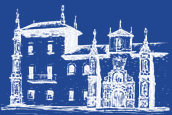Abstract
Ernest Hemingway launched his career as novelist with The Sun Also Rises, set in large measure in the Basque Country. It was the beginning of a life-long involvement with things Basque. The present article examines the nature of this fascination and its shortcomings. Ernest became a regular attendee of Pamplona's San Fermín festival (and a key architect of its international fame). During his two-decade residence in Cuba, he surrounded himself with Basque jai alai players and political refugees from the Spanish Civil War. Yet Hemingway remained insensitive, if not downright indifferent, to their fervent Basque nationalism. When he subsequently divided his time between Cuba and Idaho (home of the most prominent Basque-American community in the United States) he manifested little interest in the sheepherders and their descendants. In sum, for Hemingway the Basques were the most authentic expression of his beloved Spain and were of interest to the degree that they fed his interests in bullfighting, trout fishing, cuisine, jai alai and folkloric exotica.
DOI
https://doi.org/10.18122/B2GT54
Recommended Citation
Douglass, William A.
(2015)
"The Sun Also Sets,"
BOGA: Basque Studies Consortium Journal: Vol. 3
:
Iss.
1
, Article 1.
https://doi.org/10.18122/B2GT54
Available at:
https://scholarworks.boisestate.edu/boga/vol3/iss1/1

About the Author
William A. Douglass, world-renowned scholar of Basque studies and the founder of the Basque Studies Program (now Center for Basque Studies at the University of Nevada, Reno). A pioneer in Basque Studies his publications are in the hundreds with articles, conference presentations, edited volumes and monographs starting with his doctoral research in the Basque Country that yielded Death in Murelaga: Funerary Ritual in a Spanish Basque Village (1969). He is coauthor (with Jon Bilbao) of Amerikanuak. Basques in the New World (1975), the iconic work in the foundation of Basque Diaspora Studies. Retiring as coordinator of the program after 33 years, he nevertheless continues researching and writing, producing Global Vasconia in 2004. Recipient of numerous awards, including “Leading Researcher” and “Best Professor” at the University of Nevada, Reno, and the prestigious “Lagun Onari” by the Basque Government. See more at https://basque.unr.edu/academics-people-douglass.html